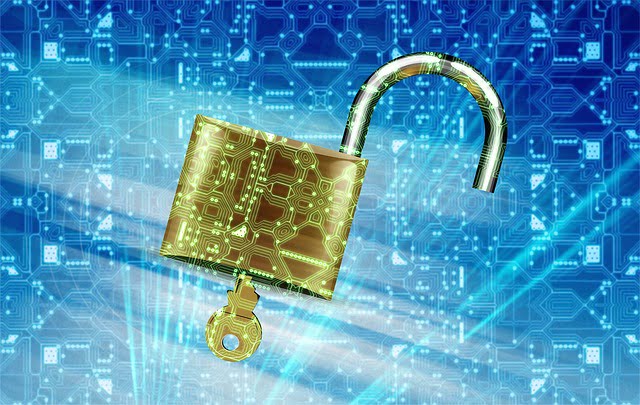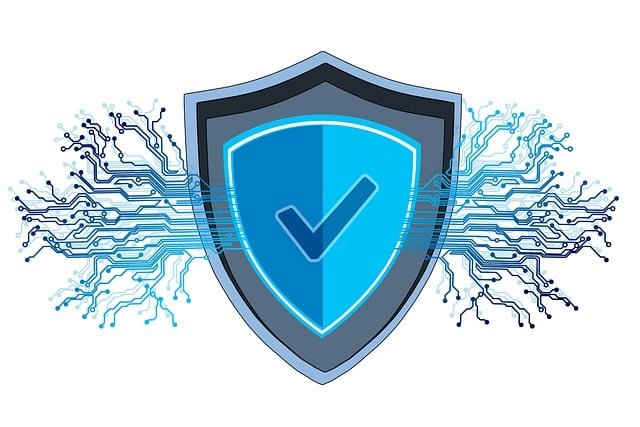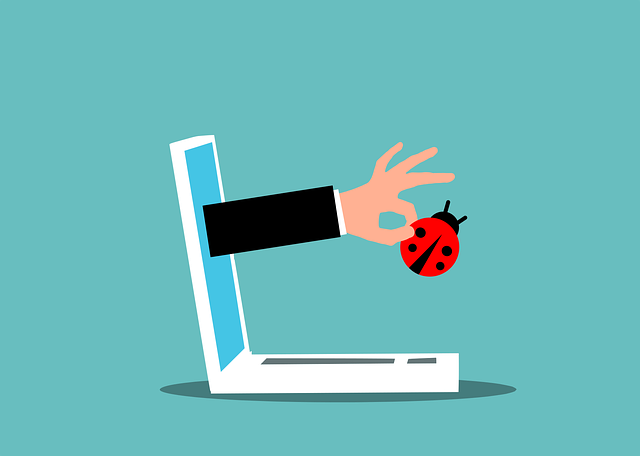We all know that protecting our personal data is incredibly important in this day and age. With data breaches becoming increasingly common, it’s important to stay on top of our online security.

Protecting your personal data from hackers, scammers, and other cyber criminals can be daunting. But with the right tips and tricks, you’re able to keep your data safe and secure.
Whether you’re trying to protect yourself against hackers or just want to ensure your data is secure, these tips can help you stay one step ahead:
Table of Contents
1) Keep your operating system and software up to date
It’s a fact that outdated operating systems and software are vulnerable to security threats, exposing your personal information.
To prevent this, it’s important to ensure your operating system, including any third-party applications and plugins, is kept up to date with the latest patches and security updates. To do this, you can enable automatic updating in your settings or check manually for updates periodically.
Additionally, always download software from trusted and reputable sources and double-check that downloaded files come from a secure source.
2) Use strong passwords
Strong passwords are one of the most important steps in keeping your personal data safe and secure. A strong password should be at least eight characters long and contain both upper- and lower-case letters, numbers, and special characters. Avoid common words, phrases, or personal information in your passwords.
Besides, don’t use the same password for multiple accounts, as this could lead to a security breach. Change your passwords regularly and store them securely. Whenever possible, use two-factor authentication to protect your accounts further.
3) Don’t click on links in email
Cybercriminals often use phishing scams and malicious links to access your personal information.
Phishing emails typically contain links to bogus websites or malicious software downloads. If you click on these links, your computer could be infected with malware or ransomware, which can be used to steal your personal data. Additionally, some links may redirect you to a website that looks legitimate but is run by scammers.
Be wary of emails from unknown senders, and look for signs showing that the email might be a scam, such as spelling mistakes, generic greetings, or suspicious requests for personal information.
Always exercise caution when responding to any email, even if it appears from a legitimate source.
4) Use a firewall
A firewall is one of the most effective ways to secure personal data. A firewall acts as a barrier between your computer and the internet, blocking malicious traffic and suspicious activity from entering your system. It also helps protect you from hackers trying to access your data or spy on you online.

To ensure maximum protection, you should use both software and hardware firewalls. Software firewalls are installed on your computer and can detect malicious traffic. In contrast, hardware firewalls are located at the gateway of your network and act as a barrier against unauthorized access.
When configuring your firewall settings, block any ports that don’t need to be open. This will ensure that your computer is not vulnerable to attacks that take advantage of these ports. Additionally, consider enabling logging so that you can monitor any suspicious activity.
Finally, it’s important to keep your firewall up to date with the latest security patches. New threats emerge daily, so regularly updating your firewall will help protect you against the latest threats.
5) Use encryption
Encryption is a method of protecting data by transforming it into an unreadable format. For example, encryption prevents unauthorized individuals from viewing sensitive information, such as credit card numbers and passwords, even if they were to access the data.
When using this method, you should select strong encryption algorithms that are difficult to break. These algorithms are typically based on complex mathematical functions and modern cryptography techniques. Choose a robust key that is difficult to guess and can withstand brute-force attacks.
To ensure maximum security, you should store your encrypted data separately from unencrypted information. This prevents potential attackers from accessing your encrypted data if they were to gain access to your unencrypted data.
You should also keep your encryption keys safe and secure. Be sure to store them in a secure location and regularly back them up in case they are lost or stolen. In addition, it is essential to review and update your encryption protocols regularly to ensure your data remains inaccessible to scammers.
6) Use anti-malware software
Anti-malware software helps protect against malicious programs, such as viruses, spyware, and other malicious software that can steal or corrupt your data.
It will scan your computer for potential threats and alert you if something suspicious is detected. This can help you identify problems before they become major issues.

What is more, anti-malware software will help keep your computer running smoothly by removing unwanted programs and ensuring only authorized programs are running on your machine. With proper installation and regular updates, anti-malware software is invaluable for keeping your personal data safe and secure.
7) Back up your data
Backing up your data is one important way to protect your valuable information. Here are five tips to help you back up your data properly:
- Make sure you have a secure backup storage system. Cloud storage, external hard drives, or USB drives are all good options.
- Always back up your data at least once a month or more.
- Regularly update your security software, especially when backing up your data.
- Create multiple copies of your data and store them in different places. This way, you won’t be left without backups if one fails.
- Test your backups periodically to make sure they are working properly. This will ensure that your backups are up-to-date and that you can restore them quickly in an emergency.
8) Be cautious about public Wi-Fi
Public Wi-Fi networks, in particular, can be a security risk, as they allow hackers to intercept your data and access sensitive information. Here are five tips for staying safe when using public Wi-Fi networks:
- Avoid logging into accounts or entering confidential information over a public Wi-Fi network. Doing so could put your data at risk of being intercepted by hackers.
- Use a Virtual Private Network (VPN) to protect your data when connecting to a public Wi-Fi network. A VPN encrypts all data sent over the network, making it much harder for someone to intercept it.
- Check the name of the Wi-Fi network before connecting to it. Ensure it is the one you intended to connect to and that it is not a spoofed network set up by someone else.
- Consider using two-factor authentication for your accounts when connected to a public Wi-Fi network. This adds an extra layer of protection if someone gets access to your account.
- When possible, avoid using public Wi-Fi altogether. Instead, use cellular data or create your own Wi-Fi hotspot from your smartphone or other devices.
9) Limit access to your personal data
It’s important to be mindful of who has access to your data. Limit the number of people who can access your sensitive information by keeping it secure and not sharing it with anyone you don’t trust.
Once again, do not trust unverified sources. If you have any suspicious requests for your details sent by SMS or made over the phone, always run a reverse phone lookup of unfamiliar phone numbers on PhoneHistory before responding.
Additionally, it’s important to be aware of who has access to physical documents, such as bank statements and credit cards, and keep them in a safe place at all times.
The Bottomline
Protecting your personal data is important and should not be taken lightly. However, there are many steps you can take to keep your data safe and secure.
Taking a proactive approach to protecting personal information will help you rest easy knowing that your information is secure.




